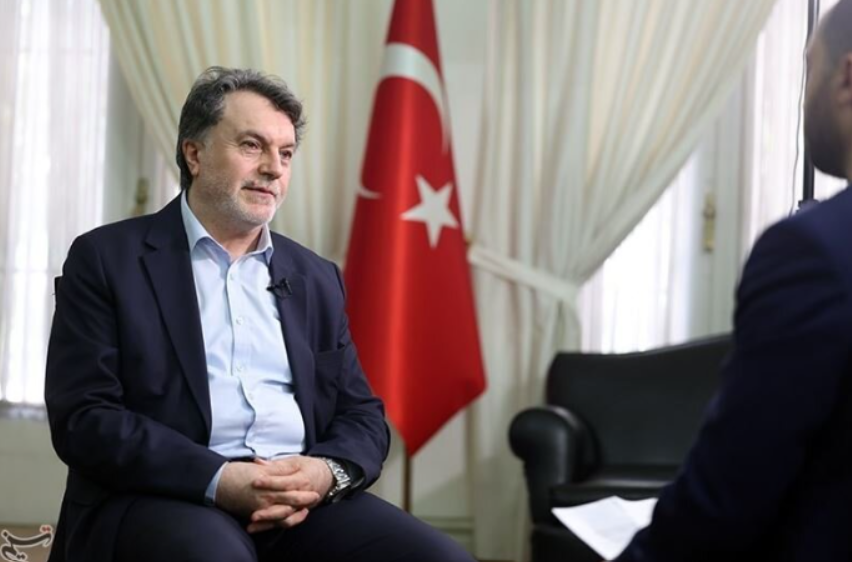Turkey’s ambassador to Iran, Hicabi Kırlangıç, stated that Ankara cannot advise Tehran to remain patient or avoid a strong response following the assassination of Ismail Haniyeh, the political leader of Hamas, in Tehran, in an interview with Iran’s Tasnim News Agency.
Kırlangıç emphasized the seriousness of the situation and indicated that Iran’s response could be more forceful than expected.
The assassination of Haniyeh on July 31, which Iran has blamed on Israel, has significantly heightened tensions between the two nations. Although Israel has not claimed responsibility, the incident has raised concerns about potential retaliation from Iran, further escalating an already tense situation in the Middle East.
Kırlangıç stressed that the responsibility for addressing the assassination should not fall solely on Iran.
“It is unreasonable to just wait for Iran to act,” he said, suggesting that other countries in the region share the responsibility for responding to the incident. He did not specify what form Iran’s response might take but noted that it could be one that Israel does not anticipate.
Turkish Ambassador in Tehran encourages Iran to respond Israel harshly and implies that a burden of response falls upon Turkey too:
'it should be answered in such a way that they retreat and come to their knees, which is not solely Iran's responsibility; all countries in the…
— hasim (@hasimtekines) August 19, 2024
The United States has asked Turkey and other allies with connections to Iran to help de-escalate the situation. US Ambassador to Turkey Jeff Flake stated that Washington has urged its allies to persuade Iran to avoid further escalation.
“We ask all of our allies that have any relations with Iran to prevail on them to de-escalate, and that includes Turkey,” Flake said during a recent round table with journalists in İstanbul.
The US request comes amid strained relations between Washington and Ankara, which have been tested over issues such as Turkey’s purchase of Russian S-400 defense systems and US support for Syrian Kurdish groups that Turkey considers terrorist organizations. Despite these tensions, Flake noted that US-Turkey relations are currently in a better state than they have been in recent years.
In an interview with Reuters in June, Flake had said Turkey remained firmly anchored in the West and that its partnership with the United States has never been stronger.
But Flake said last week that the Gaza situation had been “very difficult,” with President Recep Tayyip Erdoğan’s rhetoric against Israel making it hard for Turkey to play a role as an interlocutor. He said the divide between Ankara and Washington on Gaza had narrowed after Washington started “actively calling” for a ceasefire, but that friction remained.
Tensions, which have been running high between Turkey and Israel due to Israel’s ongoing war in Gaza, launched in retaliation for an unprecedented Hamas attack on southern Israel on October 7, have reached new heights following the assassination of Haniyeh in Tehran.
Erdoğan, who frequently hosted Haniyeh in Turkey, strongly condemned the attack on Haniyeh, blamed it on Israel and declared a national day of mourning in Turkey, sparking a fresh exchange of accusations and verbal attacks between Turkish and Israeli officials.

